Are you wondering, “Should I Be Scared To Fly Now?” Recent events might have you feeling uneasy about air travel, but flyermedia.net is here to provide you with facts and strategies to ease your anxiety and enjoy your next flight. Learn about aviation safety, pilot certifications, and aircraft maintenance, and discover how to manage your fears with practical tips and expert advice. Explore flyermedia.net for reliable information on flight safety, airline news, and travel tips.
1. Understand the Facts About Flight Safety
Is flying safe? Yes, flying is statistically the safest mode of transportation. Despite recent concerns, air travel remains incredibly safe. Commercial pilots undergo rigorous training and must possess an airline transport pilot certification, the highest aviation credential. According to Thomas Anthony, director of the USC Aviation Safety and Security Program, these pilots are highly skilled and prepared. All commercial aircraft are meticulously inspected and maintained under the supervision of the Federal Aviation Administration (FAA), ensuring compliance with stringent safety standards. The FAA also regulates air traffic control systems to guarantee safe flight paths and separation between aircraft. Understanding these facts can significantly reduce anxiety about flying.
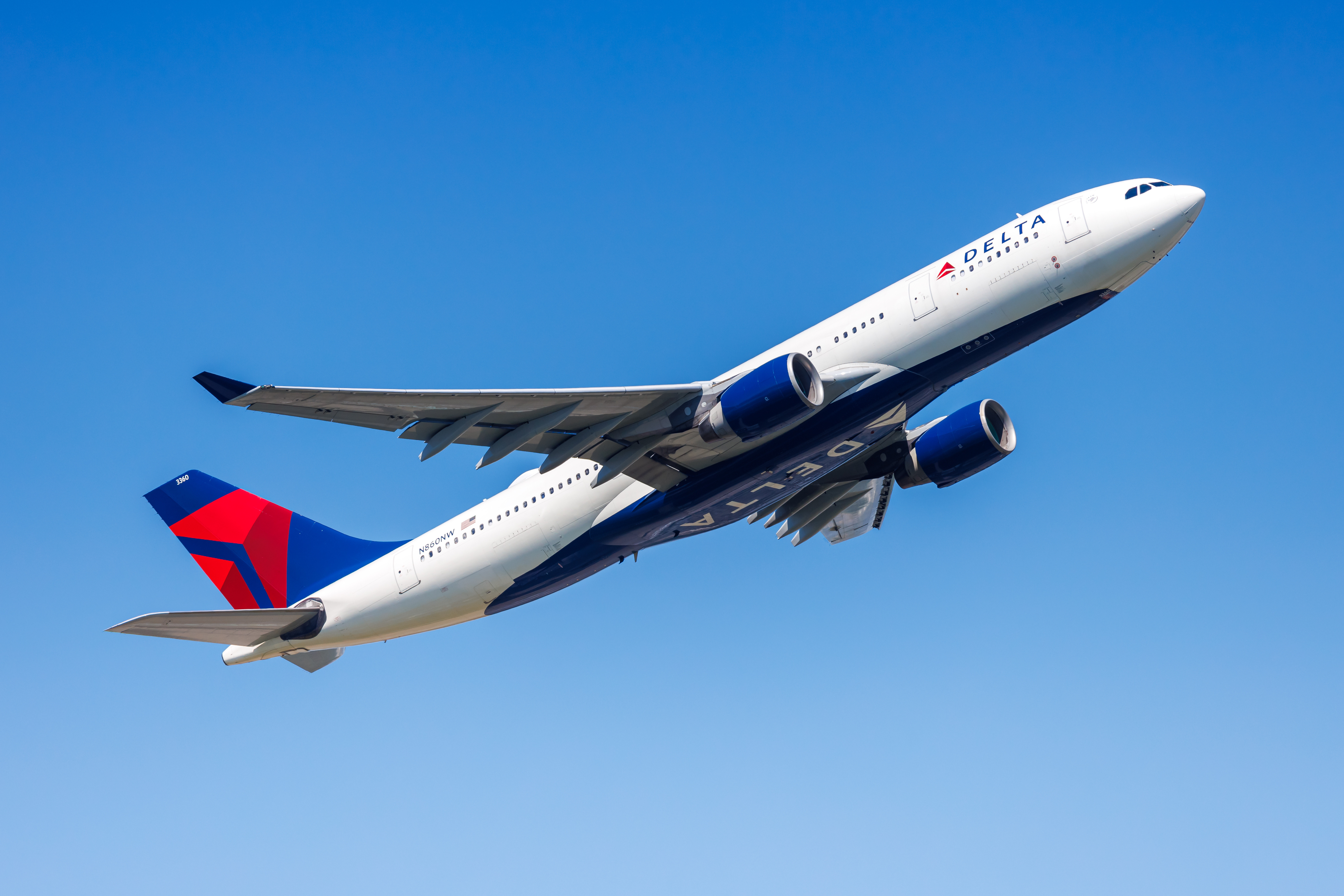 Commercial pilots must have an airline transport pilot certification, the highest possible aviation credential.
Commercial pilots must have an airline transport pilot certification, the highest possible aviation credential.
2. How to Choose the Safest Seat on an Airplane
Where is the safest place to sit on a plane? Statistically, the middle seats in the rear of the aircraft are the safest. A TIME analysis of 35 years of FAA data revealed that middle seats in the back have a fatality rate of only 28%, compared to 44% for aisle seats in the middle of the cabin. Travel experts at Kayak.com also suggest that sitting over the wings provides the smoothest flight experience, as this area is more stable and less susceptible to turbulence than the nose or tail. While no seat can guarantee safety, these insights can provide a sense of control and reassurance for anxious fliers.
3. Coping with Flight Anxiety: Mental Techniques
How can I manage my flight anxiety? Visualize and realistically address your fears. Andrea Bonior, a psychology professor at Georgetown University, explains that anxiety often stems from focusing on the worst-case scenarios. To combat this, mentally rehearse the situations that make you nervous and develop realistic responses. Prepare for potential anxiety triggers by bringing coping mechanisms like fidget spinners or downloaded meditations. By proactively addressing your fears, you can reduce their impact and feel more in control during your flight.
4. The Power of Acknowledging Your Emotions During Flight
Does acknowledging emotions help with flight anxiety? Yes, acknowledging and labeling your emotions can significantly reduce anxiety. A study published in PLOS One found that individuals who acknowledged their feelings experienced lower anxiety levels. Simply put your emotions into words to face and work past them. Sharing your feelings with fellow passengers or flight attendants can also relieve built-up anxiety. Interacting with others can provide a welcome distraction and a sense of connection, making the flight less daunting.
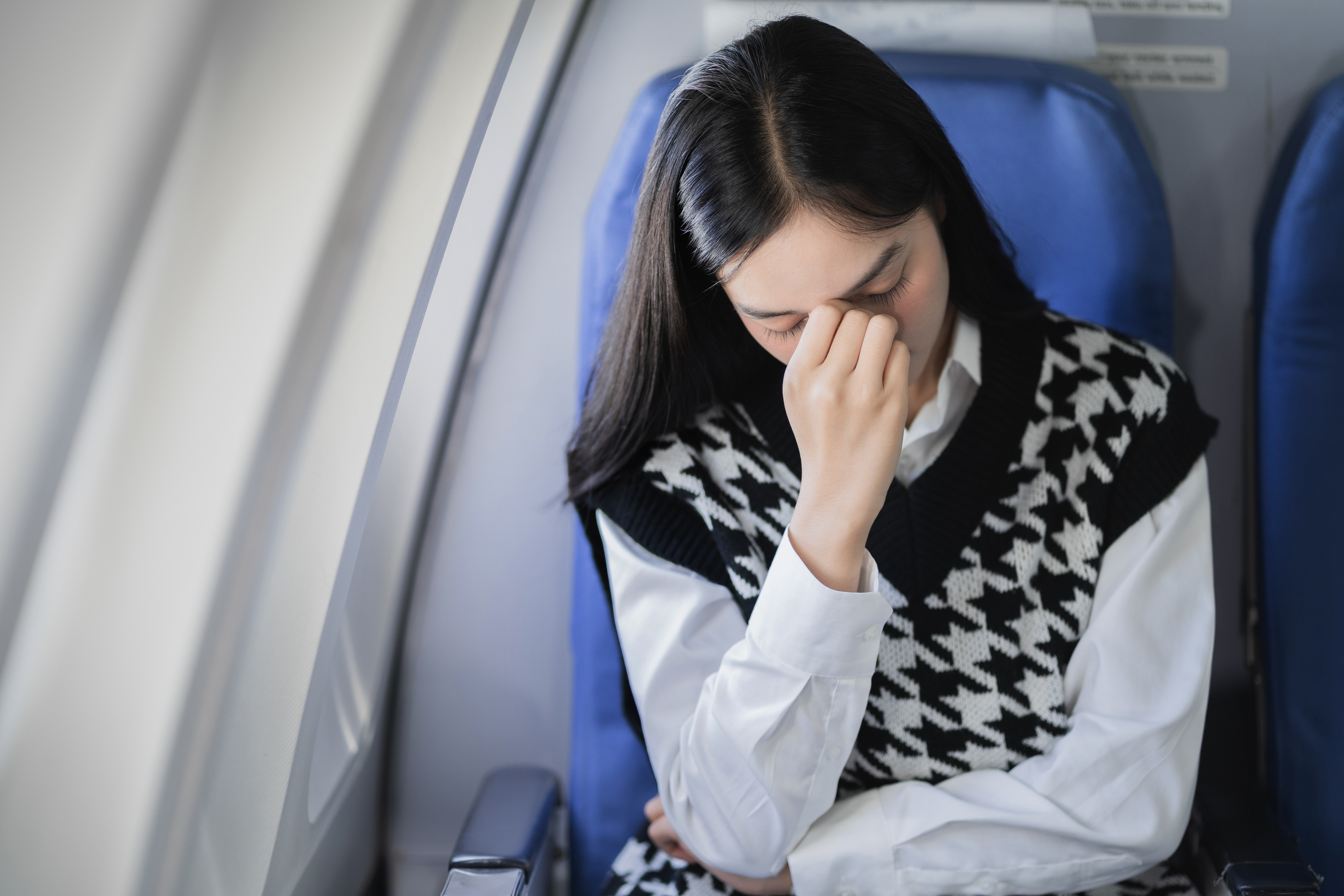 Labeling emotions lowered anxiety for people with flight anxiety, according to one study.
Labeling emotions lowered anxiety for people with flight anxiety, according to one study.
5. Physical Relaxation Techniques for Anxious Flyers
How can I relax my body during a flight? Focus on physical relaxation to reduce tension. Start by noticing how your body feels and consciously unclench your muscles. Take deep breaths and scan your body, releasing tension from your face down to your toes. Once you’ve relaxed your muscles, practice breathing exercises like tactical breathing. This technique, used by service members and first responders, involves inhaling slowly through your nose for a count of four, holding your breath for four counts, and exhaling slowly through your mouth for four counts. Repeat this cycle several times to steady your nerves and stay calm.
6. Distraction Techniques for Anxious Flyers
How can I distract myself on a flight? Distraction is a powerful tool for managing flight anxiety. Once you’ve calmed yourself and settled into your seat, try to enjoy the ride. Ryanair flight attendant Rhia Kerr suggests using noise-canceling headphones to block out unsettling aircraft noises. She also recommends creating a list of enjoyable activities or exciting moments that await you upon arrival, serving as a positive distraction. Engaging with in-flight entertainment, reading a book, or listening to music can also help you take your mind off your worries and make the time pass more quickly.
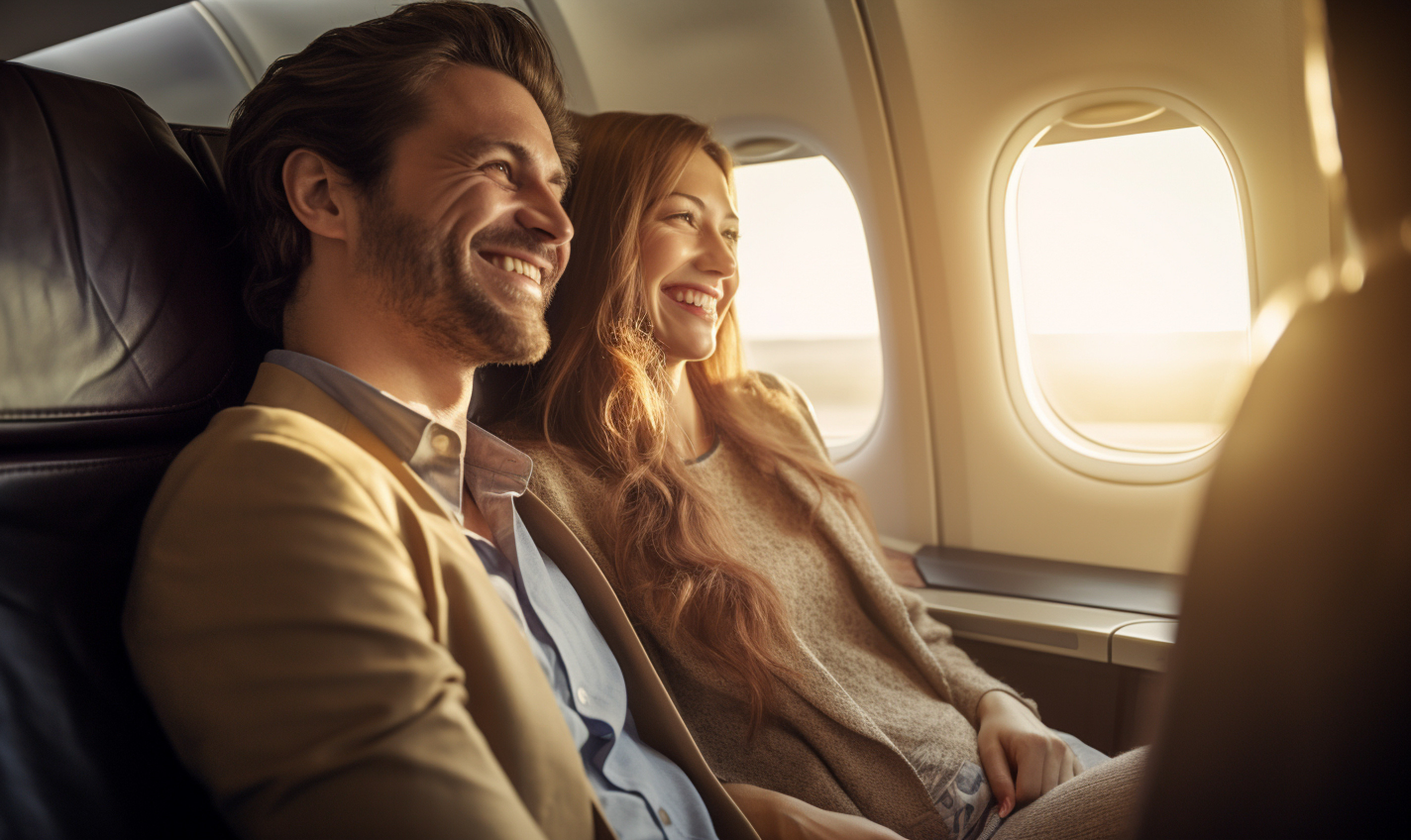 If managing your mind isn’t working, try relaxing your body. Focus on how you’re feeling physically and unclench your muscles.
If managing your mind isn’t working, try relaxing your body. Focus on how you’re feeling physically and unclench your muscles.
7. The Impact of Recent Aviation Incidents on Traveler Anxiety
Have recent aviation incidents made people more afraid to fly? Yes, recent collisions and scary incidents have increased flight anxiety. A study released in early 2025 indicated that only 64% of adults felt that flying was “very or somewhat safe,” compared to 71% in 2024. These incidents, often highlighted in news reports, can understandably raise concerns about air travel safety. However, it’s crucial to remember that these incidents, while concerning, are rare occurrences when viewed against the backdrop of millions of safe flights each year. Staying informed with accurate information and understanding the rigorous safety measures in place can help contextualize these events and ease anxiety.
8. Addressing Staffing Shortages in the Aviation Industry
How do airline staffing shortages affect flight safety? While staffing shortages can lead to delays and disruptions, they do not necessarily compromise safety. The aviation industry is facing challenges in filling positions for airline staff and air traffic controllers. According to a New York Post report, this lag in staffing, combined with investigations into airplane malfunctions, has contributed to traveler anxiety. However, it’s essential to understand that airlines and regulatory bodies prioritize safety above all else. Temporary inconveniences do not equate to increased risk, and safety protocols remain the top priority.
9. The Role of Aircraft Maintenance in Ensuring Flight Safety
How important is aircraft maintenance for flight safety? Regular and thorough aircraft maintenance is paramount for ensuring flight safety. Commercial aircraft are routinely inspected and maintained by the Federal Aviation Administration (FAA) to adhere to strict safety regulations. These inspections cover every aspect of the aircraft, from the engines and control systems to the cabin and emergency equipment. Maintenance personnel are highly trained and certified to identify and address any potential issues before they can compromise safety. This rigorous maintenance regime plays a crucial role in maintaining the high safety standards of air travel.
10. Understanding Pilot Training and Certification
What kind of training do commercial pilots receive? Commercial pilots undergo extensive training and certification to ensure they are fully prepared to handle any situation. To become a commercial pilot, individuals must obtain an airline transport pilot (ATP) certification, which is the highest level of aviation credential. This certification requires thousands of hours of flight experience, rigorous training in aircraft systems and procedures, and passing comprehensive written and practical exams. According to Thomas Anthony, director of the USC Aviation Safety and Security Program, this thorough training ensures that commercial pilots possess the knowledge, skills, and judgment necessary to operate aircraft safely.
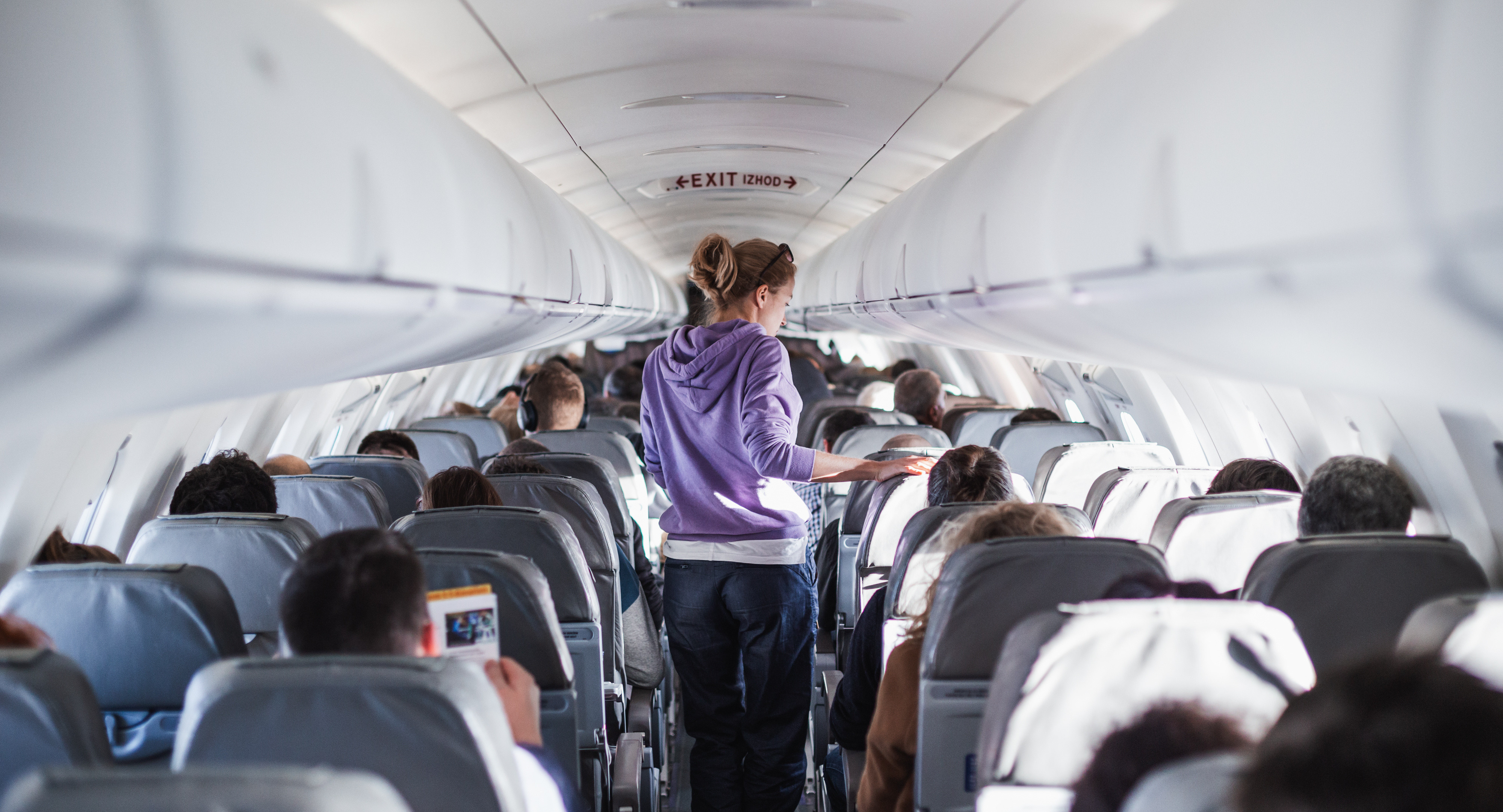 Statistically, the middle seats in the back of the aircraft are the safest to choose when flying.
Statistically, the middle seats in the back of the aircraft are the safest to choose when flying.
11. Gen Z and Flight Anxiety: A Closer Look
Why is Gen Z more afraid to fly? A 2024 study revealed that 49% of Gen Z members are afraid to fly, possibly due to heightened awareness of safety issues. This demographic may be more attuned to news and social media reports about aviation incidents, leading to increased anxiety. Additionally, broader mental health trends and higher levels of general anxiety among younger generations may contribute to this fear.
12. The Importance of Staying Informed with Reliable Aviation News
Where can I find reliable aviation news? Flyermedia.net is your go-to source for accurate and up-to-date aviation news. Staying informed with credible information is crucial for easing anxiety and making informed decisions about air travel. Flyermedia.net provides comprehensive coverage of aviation safety, airline news, and industry developments. By relying on trusted sources, you can avoid misinformation and gain a balanced perspective on the realities of air travel.
13. How Turbulence Affects Flight Anxiety
Is turbulence dangerous? Turbulence can be unsettling, but it is rarely dangerous. Aircraft are designed to withstand even the most severe turbulence, and pilots are trained to manage these situations safely. According to travel experts at Kayak.com, sitting over the wings provides the smoothest flight experience, as this area is more stable and less susceptible to turbulence. While turbulence can be uncomfortable, understanding that it poses minimal risk can help ease anxiety.
14. Overcoming Flight Anxiety: Seeking Professional Help
When should I seek professional help for flight anxiety? If your flight anxiety is severe and interferes with your ability to travel or significantly impacts your quality of life, consider seeking professional help. Licensed therapists, like Jenny Matthews of State of Mind Therapy, specialize in treating flight anxiety and can provide effective strategies for managing your fears. Cognitive behavioral therapy (CBT) and exposure therapy are two common approaches that can help you overcome your anxiety and regain control over your life.
15. The Role of Airlines in Addressing Passenger Anxiety
What are airlines doing to help anxious passengers? Airlines are increasingly recognizing the importance of addressing passenger anxiety and are implementing various measures to provide support. Some airlines offer pre-flight counseling or webinars to help passengers understand the safety aspects of flying and learn coping techniques. In-flight, flight attendants are trained to recognize and assist anxious passengers, offering reassurance and practical support. Additionally, some airlines provide access to mindfulness exercises or relaxation techniques through their in-flight entertainment systems.
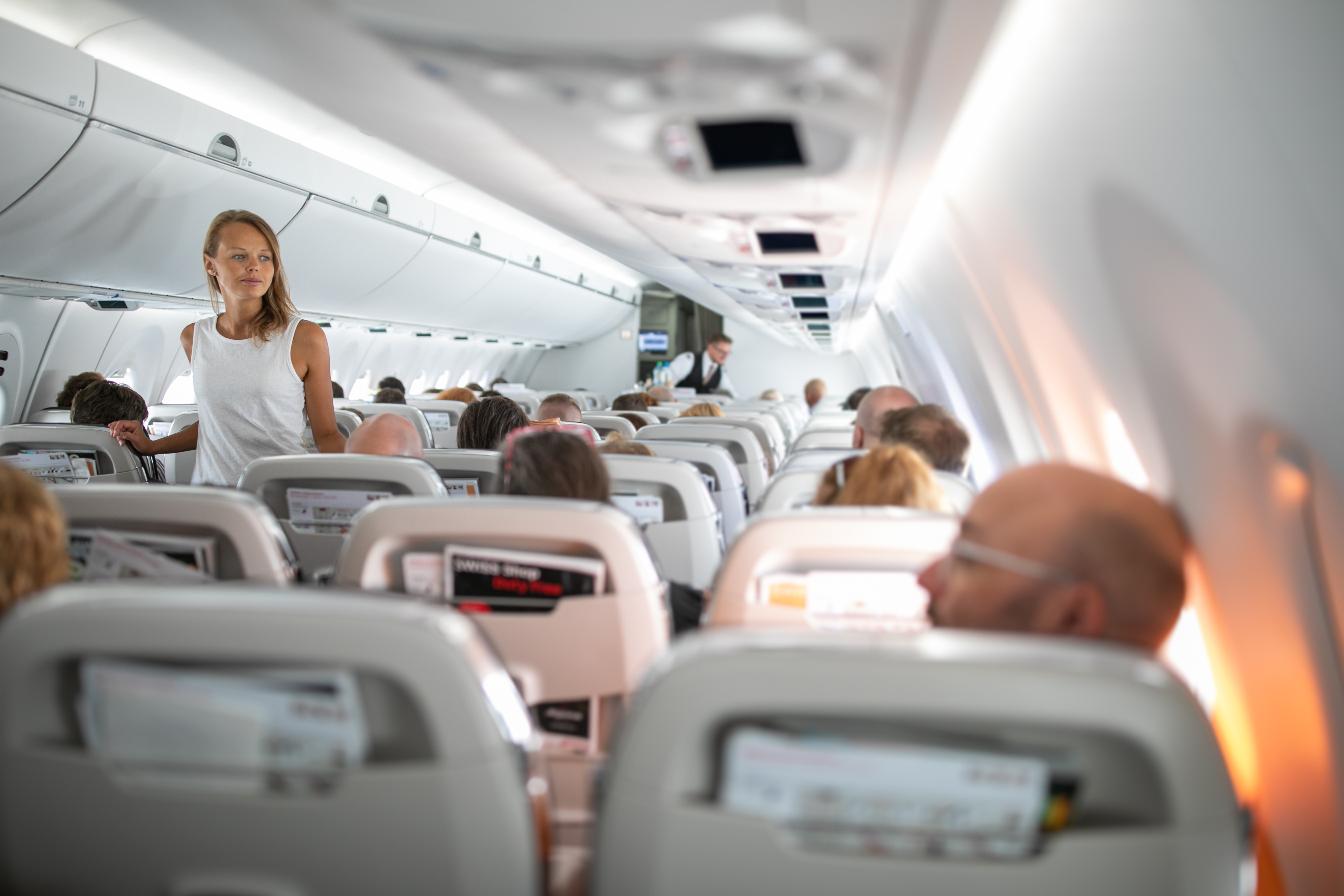 Young woman stretching her legs and walking in the airplane aisle during a long haul flight.
Young woman stretching her legs and walking in the airplane aisle during a long haul flight.
16. The Future of Aviation Safety: Technological Advancements
How are technological advancements improving flight safety? Technological advancements are continuously enhancing aviation safety. Innovations like advanced navigation systems, enhanced weather forecasting, and improved aircraft design are making air travel safer than ever before. For example, modern aircraft are equipped with sophisticated sensors and automation systems that assist pilots in maintaining precise control and avoiding potential hazards. These advancements, combined with ongoing research and development, are paving the way for even safer and more efficient air travel in the future.
17. The Benefits of Understanding Aviation Regulations
Why is it important to understand aviation regulations? Understanding aviation regulations can provide a sense of security. Regulations are designed to maintain the highest safety standards. Knowing these rules helps to trust the aviation system. Flyermedia.net explains the regulations, making them easy to understand.
18. Finding Flight Training and Career Opportunities in Aviation
Where can I find information about flight training and aviation careers? Flyermedia.net offers resources on flight training and career opportunities. If you’re passionate about aviation, you’ll find information about flight schools, pilot certifications, and job prospects. Explore your options and pursue your dreams with the help of flyermedia.net.
19. The Importance of Pre-Flight Preparation
How does pre-flight preparation reduce anxiety? Planning your trip helps to ease anxiety. Knowing what to expect at the airport and during the flight reduces stress. Check-in online, understand baggage rules, and plan your route. These preparations give you control and reduce uncertainty.
20. Building Confidence Through Education
How does learning about aviation build confidence? Education builds confidence by removing fear of the unknown. Learning about aircraft, weather, and flight procedures makes you more confident. Flyermedia.net offers a range of educational content for everyone.
FAQ: Addressing Common Concerns About Flight Safety
Here are some frequently asked questions about flight safety to further ease your concerns:
- Is it safer to fly during the day or at night? Statistically, there is no significant difference in safety between flying during the day or at night. Modern aircraft are equipped with advanced navigation systems that allow for safe operations regardless of lighting conditions.
- What happens if both engines fail on a plane? Aircraft are designed to glide safely even if both engines fail. Pilots are trained to handle such situations and can glide the plane to a safe landing.
- How often are planes inspected for safety? Commercial aircraft undergo regular and thorough inspections to ensure they meet strict safety standards. The frequency of these inspections depends on the age and type of aircraft, but they are typically conducted at regular intervals.
- What is the role of air traffic controllers in ensuring flight safety? Air traffic controllers play a crucial role in ensuring flight safety by monitoring and directing aircraft movements in the airspace. They provide pilots with information about weather conditions, traffic congestion, and potential hazards, helping them maintain safe separation and avoid collisions.
- Are smaller planes less safe than larger planes? While smaller planes may have different safety features than larger planes, they are subject to the same rigorous safety standards. The safety of a plane depends more on its maintenance and the training of its pilot than on its size.
- What causes turbulence, and how dangerous is it? Turbulence is caused by changes in air pressure and wind speed. While it can be uncomfortable, it is rarely dangerous. Aircraft are designed to withstand even the most severe turbulence, and pilots are trained to manage these situations safely.
- What are the chances of a plane crashing? The chances of being in a plane crash are extremely low. Air travel is statistically the safest mode of transportation, with millions of flights taking off and landing safely every year.
- How do pilots handle emergencies during a flight? Pilots undergo extensive training to handle a wide range of emergencies during a flight. They follow established procedures and protocols to ensure the safety of the passengers and crew.
- What are the latest safety measures being implemented in the aviation industry? The aviation industry is constantly implementing new safety measures to further improve air travel safety. These measures include advanced navigation systems, enhanced weather forecasting, and improved aircraft design.
- Where can I find more information about aviation safety? Flyermedia.net is a reliable source of information about aviation safety. Visit our website to learn more about the safety measures in place and how they protect you during your flight.
Ready to Soar?
Don’t let anxiety keep you grounded. With the right information and strategies, you can overcome your fear of flying and enjoy the freedom of air travel. Visit flyermedia.net today to explore our comprehensive resources on flight safety, pilot training, and aviation careers. Whether you’re seeking reliable news, expert advice, or inspiration to pursue your dreams in the sky, flyermedia.net is your trusted companion on your aviation journey.
For more information, contact us at:
Address: 600 S Clyde Morris Blvd, Daytona Beach, FL 32114, United States
Phone: +1 (386) 226-6000
Website: flyermedia.net
Keywords: flight anxiety, aviation safety, air travel, pilot training, airline news
